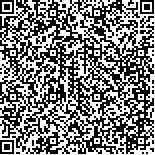下载中心
优秀审稿专家
优秀论文
相关链接
摘要

抽取地下水进行农业灌溉是导致地下水位快速下降的重要因素,而长期过度开采地下水往往会引发地面沉降灾害,这种现象在干旱和半干旱地区非常普遍。为了研究农业灌溉超采引发的地表形变特征和演化规律,本文以准噶尔盆地南缘、天山北麓地带为研究区域,利用SBAS-InSAR技术对2003年—2009年覆盖呼图壁县的ENVISAT/ASAR升、降轨数据进行处理,获取了该地区的地表形变场,并结合研究区的农业灌溉方式、水资源补给和季节变化等资料对地面沉降的时空变化特征进行分析,为水资源和农业可持续发展提供参考意义。实验表明,研究区内主要有两个沉降幅度较大的漏斗,且都位于农田区域。2007年以前,研究区地表没有显著形变,之后发生了较大量级的沉降。采用传统灌溉方式和时针式灌溉系统的农业区平均沉降速率最高分别可达50 mm/a和30 mm/a,前者在时间上呈线性变化,而后者具有显著的周期性变化特征。在冬季时,采用时针式灌溉系统的地区地面抬升量可达40 mm,远大于传统灌溉方式的农田区域,而夏季地面沉降速率可达200 mm/a。对研究区农业灌溉活动进行分析后发现,农业灌溉造成的地下水超采是该地区地面沉降的主要影响因素,其形变机制与季节变化具有较高的相关性,在灌溉活动休止期内地表形变取决于地下水的补给量。研究区内的形变特征和影响因素分析将为地下水资源的充分利用和农业的可持续发展提供有效的信息。
Land subsidence disasters in excessively exploited cultivation areas are caused by groundwater-dependent irrigation, which has a strong influence on the rapid decline of water table, especially in arid and semiarid regions. Many depression cones appeared in the agricultural districts in Junggar Basin, due to groundwater overexploitation, over developed crop production, and large water consumption. However, the land subsidence information in this basin is limited.Interferometric Synthetic Aperture Radar (InSAR) technology, which has emerged in recent years, has been widely used in monitoring agricultural irrigation settlement, benefiting from its high precision, high resolution and wide temporal and spatial coverage. Small Baseline Subset (SBAS) algorithm selects high-quality image pairs obtained via D-InSAR after setting the threshold of time base and space baseline. In order to investigate the characteristics and evolution of the surface deformation induced by groundwater-dependent irrigation, we obtained the deformation information on the southern margin of the Junggar Basin and northern foothills of the Tianshan Mountains using ENVISAT/ASAR data (descending and ascending tracks) covering Hutubi County from 2003 to 2010. Data were processed utilizing time series InSAR technology based on GAMMA software and SBAS-InSAR technology.Results from two different tracks are consistent, which show two subsidence funnels were formed in the field area after 2007. In the study area, the traditional irrigation method and clockwise irrigation system may cause average subsidence rates of 50 and 30 mm/y, respectively. The subsidence rate of the traditional irrigation method shows a linear trend over time, while that of the clockwise irrigation system is closely related to the season. In winter, the ground uplift in the area with clockwise irrigation is approximately 40 mm, which is significantly larger than that of the field area with the traditional irrigation method. In summer, the land subsidence rate caused by the clockwise irrigation system was 200 mm/y.Therefore, groundwater overexploitation in agricultural irrigation is the major factor of land subsidence. Moreover, surface deformation during non-irrigation period is caused by groundwater recharge. Long-term extraction of groundwater for agricultural irrigation induces not only ground displacement but also serious soil salinization, which are unfavorable for crop growth and soil self-repair. Therefore, changing irrigation methods and improving the utilization of water resources are crucial. Spatial and temporal variation characteristics of land subsidence can provide a theoretical reference for the sustainable development of water resources and agriculture.

